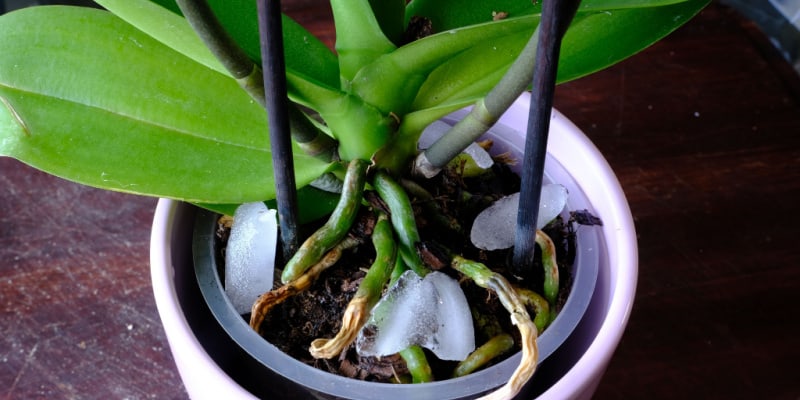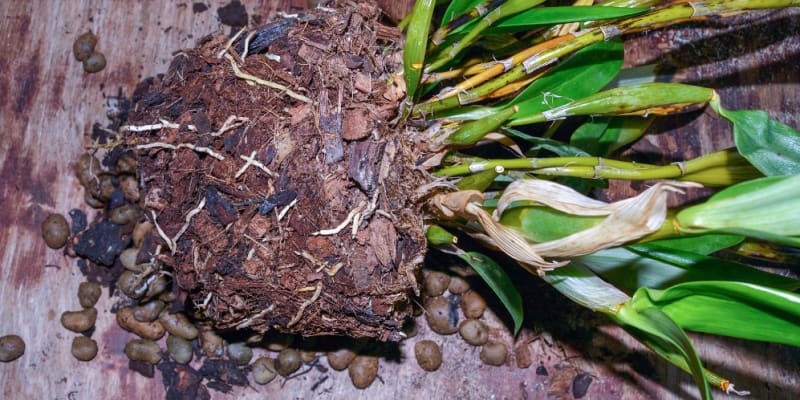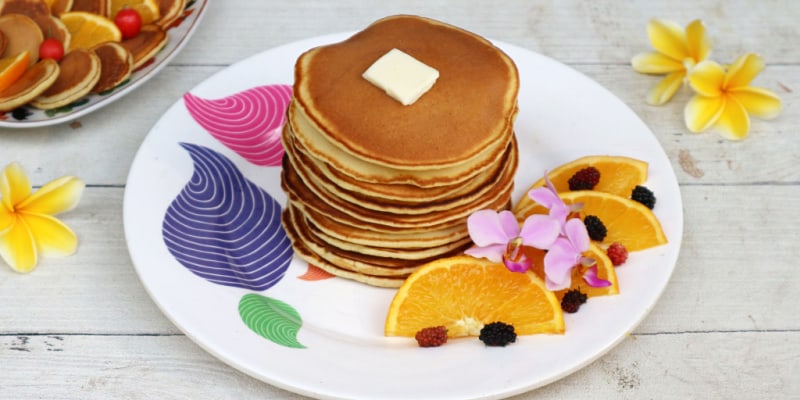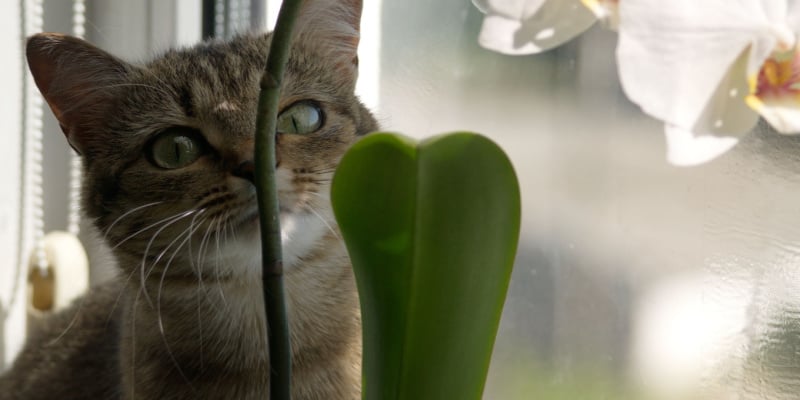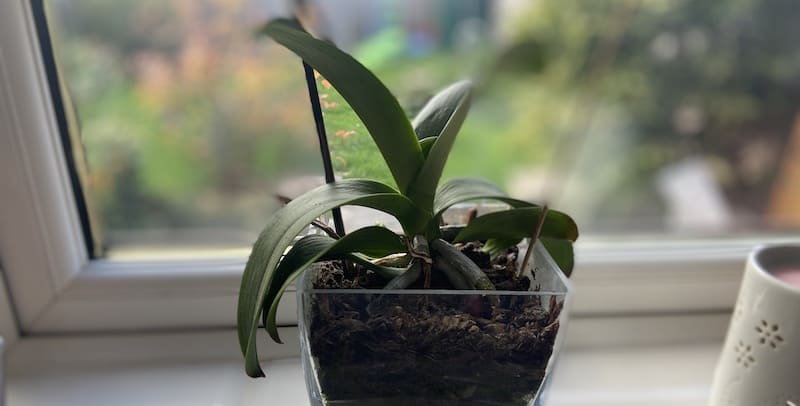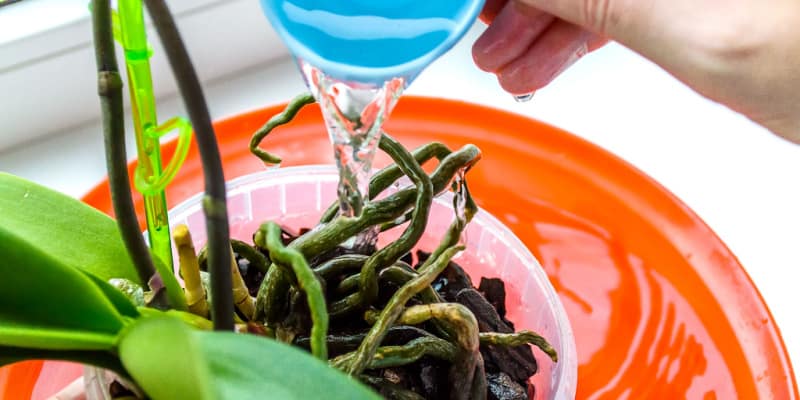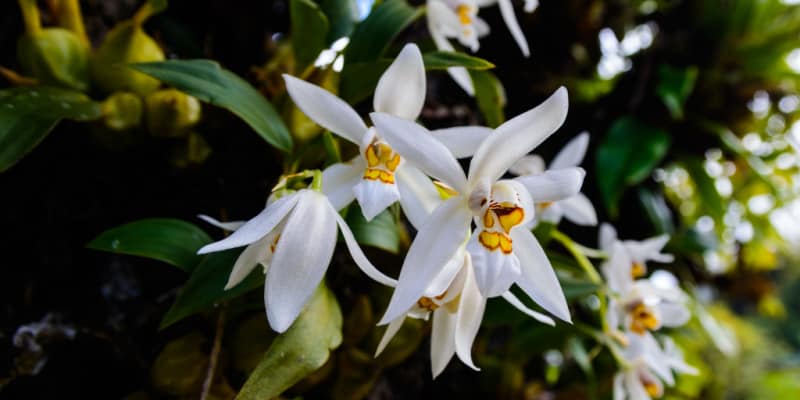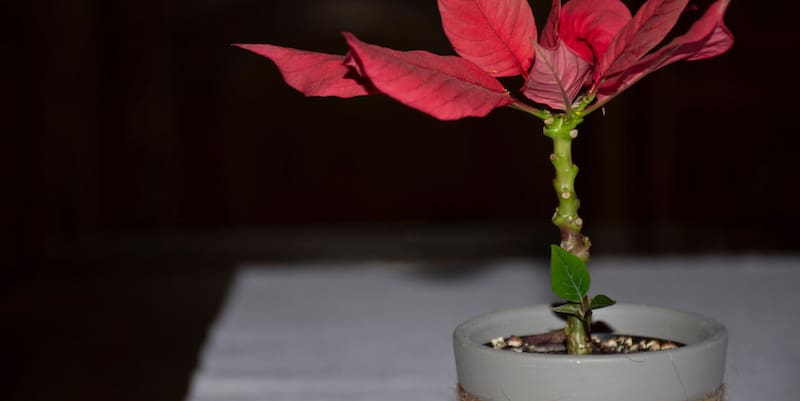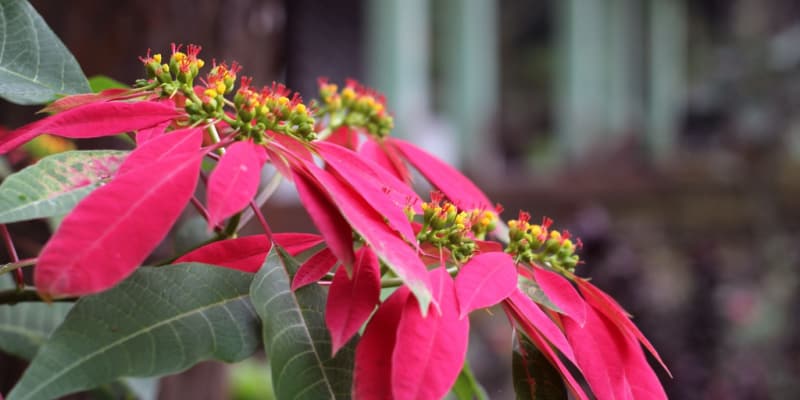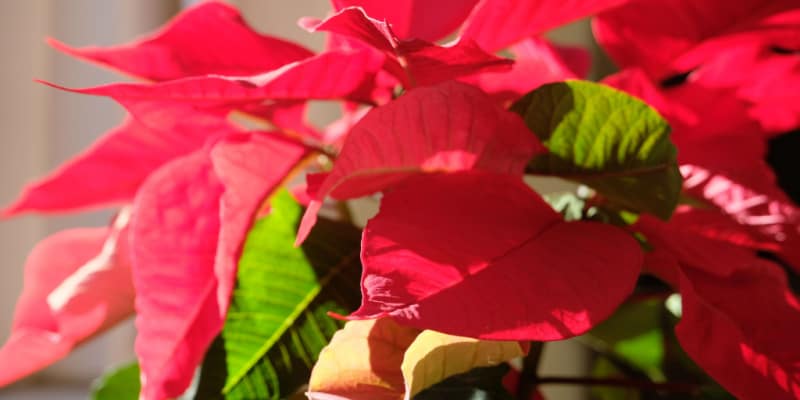Should you water an orchid with ice cubes?
I did a lot of research for this guide as traditionally, I have never watered my orchids with ice cubes, however, I have used ice packs on my outdoor pots in summer to great effect. The thing is, I still don’t know if you should water an orchid with ice cubes and if there is a real benefit. I’ve spent 20 years refining my watering techniques which I talked about here on how and when to water orchids. So this…
